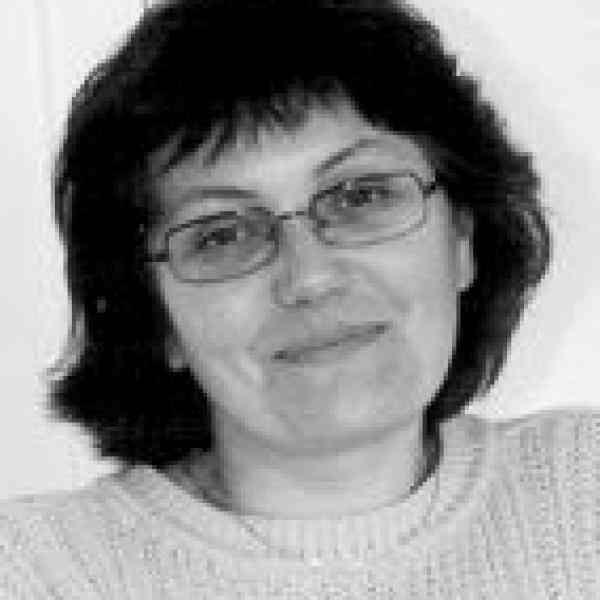Introduction
Ausra Kuriene is empowering children and families at risk through community education and by promoting civic participation. She is creating an active network to arrest the development of more serious childhood psychological problems. Her approach moves away from the traditional, inefficient model to a broad civic movement involving key players.
The New Idea
Ausra believes that society is able to address the psychological needs of at-risk children by involving the wider community in early prevention and intervention. She raises awareness and provides new knowledge and skills, enabling community members to actively participate in solving children's problems. Ausra is countering the current approach, in which interventions in psychological cases are carried out mainly by professionals, due to the need for more immediate and effective crisis identification and support. Adults whom the child meets every day-teachers, coaches, pediatricians, police-usually are not able to recognize signs of crisis, nor do they feel capable to do anything about it. Educating the adults a child meets everyday about the signs of psychological problems and methods of intervention enables them to act with greater efficiency and certainty than even a doctor could.
The Problem
Families in Lithuania face many social, economic, and psychological issues that significantly affect the development of their children. During periods of tremendous change, many families experience enormous pressures. Lithuanian family morality and child safety are decreasing, represented by rising rates of abandonment, abuse, violence, and suicide. To become healthy, independent, and responsible members of society, children need not only treatment, but also support and understanding at home, school, and in their communities. Lithuania, like most post-Communist countries, inherited a centralized system of services for children with emotional, psychosocial, and developmental problems. As social problems are suppressed by the former ideology, children's mental health problems are treated as disorders of central nervous system. Children from broken homes are often institutionalized for misdiagnosed psychiatric problems. Lithuania's existing child psychiatric and social support programs are temporary and treated as campaigns rather than holistic, strategic programs. They lack consistency and are oriented to the children who have already expressed quite serious behavioral or emotional problems. These programs exclude the early prevention issue.
The Strategy
Ausra established the Children Support Center in 1999 as a combination of her daily activities in professional counseling, volunteer administration, and child mentoring. The center is Lithuania's first active network of child psychology and prevention specialists. Ausra conducts training seminars for groups of five hundred people around Lithuania, including teachers, pediatricians, nurses, police and truancy officers, and lawyers. People who encounter children every day often feel helpless to affect behavioral change. The training is designed to help participants understand the issues faced by and contributing to children in crisis, such as divorce, loss of a loved one, and abuse. Familiarity with children's feelings and the issues causing emotional or social problems fosters effective intervention. Ausra also works with the Ministries of Education and Science to develop new programs and partnerships to address the issues surrounding child psychology at the public level. She successfully lobbied for obligatory teacher training in building esteem and self-respect among students, teaching them necessary social and interpersonal skills to resist psychological pressures. Ausra works toward greater shared responsibility for children's well-being. She advocates that all members of the community, not just psychology professionals and parents, must support and assist children at risk of social or emotional crisis in order to promote a more secure and fruitful future for everyone. Ausra looks for and builds upon individuals' strengths to prevent, minimize, or overcome the damaging effects of social pressures and hazards to development. Her Children Support Center promotes crisis prevention at schools, facilitates cooperation through the creation of multi-disciplinary child assistance teams, educates parents in child abuse and crisis prevention, recruits volunteers for direct assistance to children in difficult life situations, and cooperates with the media and press to raise awareness about children's problems and the importance of early prevention and intervention.
The Person
For two years in high school, Ausra conducted class when there was no head teacher. During this substitution, she recognized learning difficulties in a few of her classmates, organizing a self-support group and mentoring program in response. Ausra saw the importance and absence of adult mentorship and support in the school when teachers acted defensively and cruelly toward students dealing with the loss of a classmate who had committed suicide. After completing university training in clinical psychology, Ausra started her career at the state psychiatric hospital in Vilnius. She was recognized as a leading specialist in the field of psychological diagnostics and was appointed to the Department of Juridical Expertise. The majority of Ausra's clients were young people who had committed some crime. Her work there was challenging and frustrating and she constantly dealt with the feeling that she was too late to intervene effectively because she dealt only with consequences of traumas, which were mostly irrevocable. She became the Director of Lithuania's first Big Brothers/Big Sisters program in 1995. She oversaw the program's expansion to Macedonia, Russia, Latvia, Estonia, Romania, and Bulgaria and is a member of the International Professional Advisory Board. She is also a member of the Board of Directors for the Coalition For the Safe and Healthy Child and is a member of the Advisory Board for the President of Lithuania on children's issues.
